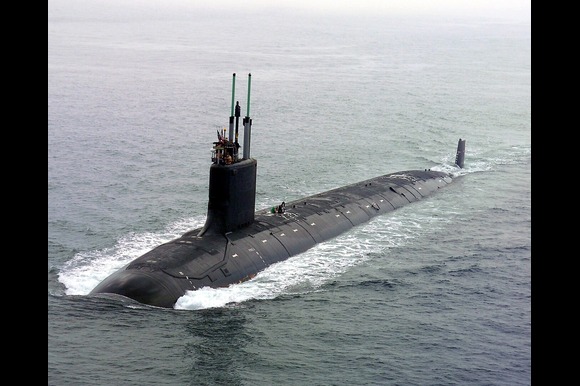The Kremlin has downplayed U.S. President Donald Trump’s recent directive to reposition two nuclear submarines closer to Russian territory, stating that Moscow does not wish to engage in rhetorical disputes.
In the first official response since Trump’s remarks last Friday, Kremlin spokesperson Dmitry Peskov said that American submarines are regularly on combat patrol, dismissing the notion that their redeployment marks any significant escalation in tensions.
“These are very complex and sensitive matters that, understandably, provoke strong emotions,” Peskov noted. However, he cautioned that nuclear-related language should be handled with extreme care.
According to Russian media, U.S. envoy Steve Witkoff is expected to visit Moscow on Wednesday. The diplomatic visit comes after Trump announced he had ordered the submarines to be “positioned in the appropriate regions” in response to what he described as “highly provocative” statements made by Dmitry Medvedev, the former Russian president.
Trump did not specify whether the submarines in question were nuclear-powered or carried nuclear weapons.
Medvedev—who has become known for increasingly inflammatory rhetoric online in recent years—accused Trump of issuing ultimatums to Russia after the U.S. president introduced a new deadline for Russian President Vladimir Putin to end the war in Ukraine.
While Peskov did not directly address the dispute involving Medvedev, he said that in any country, various leaders might hold differing views. He emphasized that Russia’s foreign policy decisions rest solely with Putin.
Medvedev has not publicly responded to Trump’s remarks and has been inactive on the social media platform X since posting the original message.
Following Trump’s inauguration in January, U.S.-Russia relations initially improved. However, in recent weeks, Trump has increasingly expressed doubts over Putin’s sincerity in seeking a resolution to the ongoing war in Ukraine, which began with Moscow’s full-scale invasion in February 2022.
Trump has since advanced a deadline for a peace deal, warning that if no ceasefire is reached by Friday, August 8, Moscow will face severe new tariffs—targeting its oil exports and other key sectors.
Despite escalating rhetoric, communication channels between Washington and Moscow remain open. Peskov welcomed Witkoff’s upcoming visit, saying, “We are always happy to see Mr. Witkoff in Moscow. We consider such contact important, meaningful, and useful,” and noted the possibility of a meeting between Witkoff and Putin.
Should a ceasefire not be agreed upon by the set date, Trump has threatened to impose direct sanctions and secondary tariffs aimed at dissuading other nations from conducting trade with Russia.
Yet Trump has acknowledged the challenges in enforcing such measures, admitting that Russia—currently the most sanctioned country globally—has proven adept at circumventing restrictions.
In a sharply worded post on Truth Social, Trump also criticized the Russian military and took aim at India for its continued purchases of Russian oil. He accused India of indifference toward the suffering in Ukraine, stating that it does not care “how many people in Ukraine are being killed by the Russian War Machine.” Trump vowed to “substantially” raise tariffs on Indian goods in retaliation.
Meanwhile, diplomatic efforts to end the war remain stalled. Three rounds of negotiations between Russian and Ukrainian delegations since spring have failed to make significant progress.
Just last week, Putin reiterated that Russia’s strategic aim remains the removal of what it deems the root causes of the crisis in Ukraine, while ensuring Russia’s long-term security.
Moscow’s peace demands—such as Ukraine renouncing its NATO ambitions, scaling back its military forces, and adopting a neutral status—remain firmly opposed by both Kyiv and its Western allies.
On the ground, the war continues to take a heavy toll. Overnight from Sunday to Monday, Russian strikes on Ukraine’s southern Zaporizhzhia region claimed four lives, while one civilian was killed in Kherson. A deadly Russian assault on Kyiv last week left at least 31 dead and 159 wounded.
Ukraine, in turn, continues to target military infrastructure inside Russian-held territory. On Monday, Kyiv claimed responsibility for a drone attack on a Russian airbase in occupied Crimea, saying it had destroyed one fighter jet and damaged several others.






